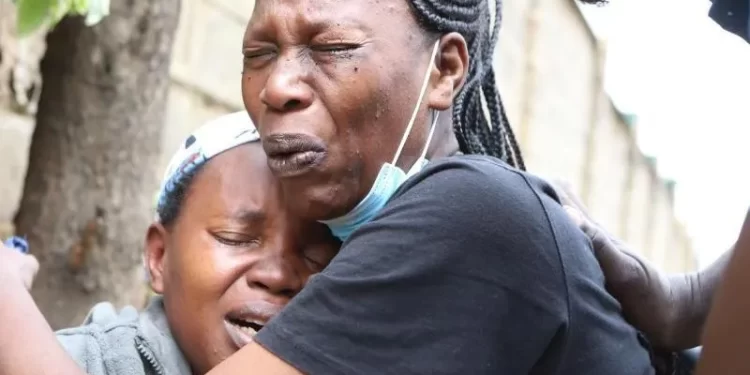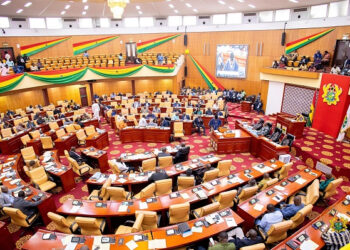Kenya’s President William Ruto says he will withdraw a finance bill containing controversial tax hikes after deadly protests which saw parliament set ablaze on Tuesday.
In an address to the nation, he said it was clear that Kenyans “want nothing” to do with the bill.
“I concede,” he said, adding that he will not sign the bill into law.
At least 22 people were killed in Tuesday’s protests, according to the state-funded Kenya National Commission on Human Rights (KNHRC).
Mr Ruto said he would now enter into dialogue with the young people, who were at the forefront of the biggest protests to hit the country since he was elected in 2022.
“Listening keenly to the people of Kenya who have said loudly that they want nothing to do with this Finance Bill 2024, I concede.
“And therefore, I will not sign the 2024 Finance Bill, and it shall subsequently be withdrawn. The people have spoken,” he said in the televised address.
Protesters broke into parliament, vandalising the interior and setting parts of the complex on fire. The ceremonial mace, symbolising the authority of the legislature, was stolen.
Mr Ruto initially responded with defiance.
He ordered the military to be deployed, saying “violence and anarchy” would not be tolerated.
But he climbed down on Wednesday, as public anger grew over the killing of protesters.
Wanjeri Nderu, head of the International Society For Human Rights, told the BBC what was experienced during the protest was “like we were at war”, adding that police were using live ammunition even before parliament was breached.
Catholic bishops also condemned the actions of the security forces and “earnestly appealed to the police not to shoot at the protesters”, while also urging protesters to remain peaceful.
The Law Society of Kenya called on international criminal investigators to help families’ quest for justice, saying that it had reports that soldiers were engaging protesters in parliament.
UN Secretary-General Antonio Guterres said he was “deeply saddened by the reports of deaths and injuries – including of journalists and medical personnel”.
He also urged the Kenyan authorities to “exercise restraint”, and called for all demonstrations to be peaceful.
The protests took place despite the government dropping some of the bill’s most controversial proposals amid protests last week.
Demonstrators demanded that the entire bill be scrapped, which Mr Ruto has now agreed to do.
The original bill had proposed taxes on bread, cooking oil, mobile money services, specialised hospitals and on motor vehicles – all of which Kenyans said would worsen the cost-of-living crisis.
Read also: Kenyan president faces tough choices after day of bloodshed
Source: BBC



























